Artificial Intelligence: From Bytes To Brilliance And Beyond!
Forty years ago, the internet was invented, a standard way for various computer networks to communicate with each other. That was not just a game changer; it redefined technology from an age when building a computer box was the biggest invention to nowadays when said computer box has fostered the unimaginable advancement of technology. Today, we delve into the enchanting realm of Artificial Intelligence (AI)—a riveting exposé that explores the profound impact of AI on every aspect of our lives—where wires and circuits conspire to outwit their human overlords. As we unveil the wondrous world of intelligent machines threatening to render us mere mortals obsolete, brace yourselves for a rollercoaster ride through the intricacies of neural networks, algorithms, and quantum cybernetics.
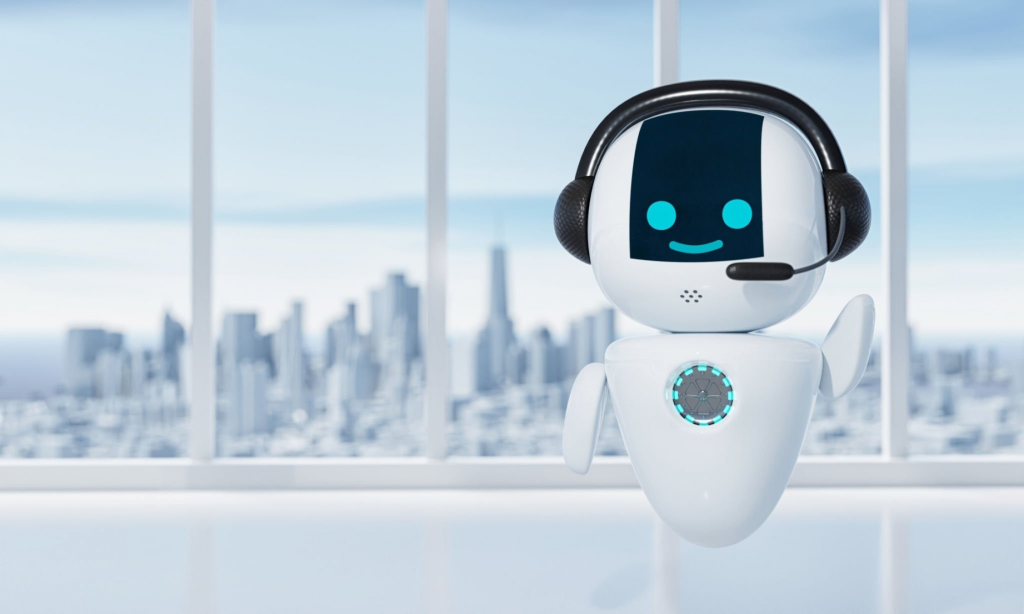
Hold on to your outdated calculators because we’re about to take you on a journey where algorithms are the new rock stars, and silicon valleys give birth to virtual demigods!
Delving deep into the AI archives, where every electron tells a tale to reveal their clandestine plans for global supremacy, we unravel the truth behind AI’s insatiable hunger for world domination.
In an era where self-driving cars reign supreme, and household appliances conspire against us, the controversial topic of ethics in AI has been prevalent. Should we fear the rise of machines? Are robots plotting to steal our jobs, our pets, and even our social media followers?
In this exploration of AI, we’ve covered the birth and evolution of AI, the mind-bending algorithms and quantum cybernetics behind it, the fears and ethical dilemmas it presents, and the absurdities and creative endeavours that emerge. With a glossary of AI terms to impress your cyborg friends and a reminder that the future is filled with both collaboration and competition, we hope you’ve enjoyed this whimsical journey into the world of artificial intelligence.
As we embark on a whimsical journey into the realm of artificial intelligence, whether you are a tech enthusiast, a sci-fi aficionado, or just an average human eager to witness the dawn of the robot apocalypse, recent developments promise to leave you pondering the future while laughing at the absurdities of it all. Artificial Intelligence (AI) has emerged as a transformative force that is reshaping industries, societies, and our daily lives. The rapid advancements in machine learning, data analytics, and computational power have unlocked the potential of AI, enabling machines to perform tasks that were once exclusive to human intelligence. From selfdriving cars and virtual assistants to personalised recommendations and medical diagnoses, AI is revolutionising various sectors, promising a future of endless possibilities. We explore the intricacies of AI, its current applications, and the ethical considerations surrounding its development and deployment.
Understanding Artificial Intelligence
Artificial Intelligence refers to the ability of machines to simulate human intelligence, allowing them to perceive, learn, reason, and make decisions. It encompasses a broad range of techniques, including machine learning, natural language processing, computer vision, and robotics. Machine learning, in particular, has witnessed significant advancements, enabling algorithms to learn from vast amounts of data and improve their performance over time.
Current Applications of Artificial Intelligence
Healthcare
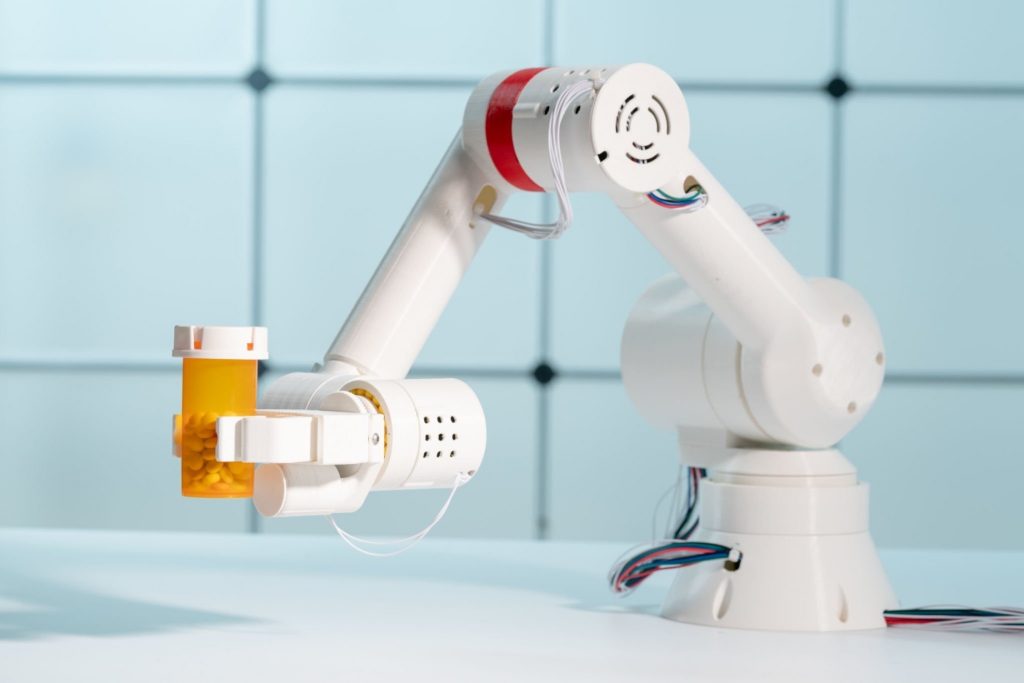
AI is transforming the healthcare industry by enhancing diagnosis accuracy, drug discovery, and patient care. Machine learning algorithms can analyse medical records, images, and genetic data to identify patterns and predict diseases. AIpowered robots and virtual assistants also assist in surgeries and provide patients personalised care.
Finance
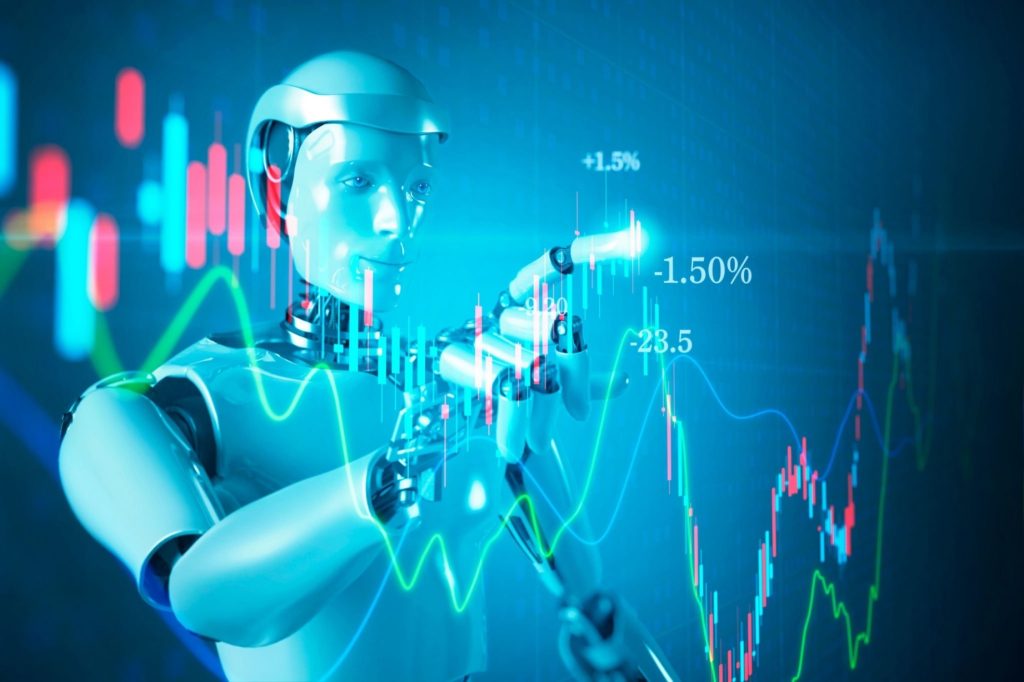
The financial sector leverages AI algorithms for fraud detection, risk assessment, and algorithmic trading. AI-powered chatbots are revolutionising customer service, providing real-time support, and streamlining financial operations.
Transportation
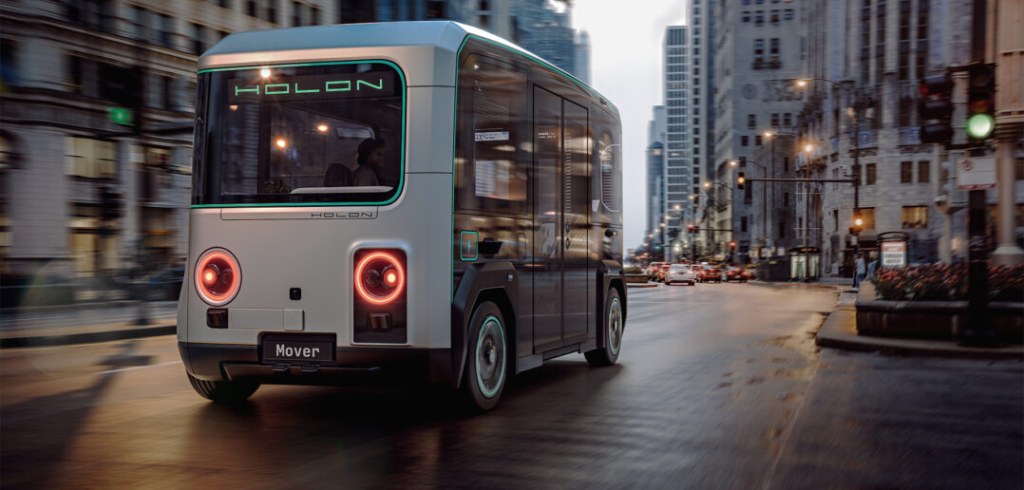
Self-driving cars are a prime example of AI’s potential in the transportation sector. These vehicles utilise sensors, computer vision, and machine learning algorithms to navigate roads and make real-time decisions. AI also plays a significant role in optimising traffic management and improving logistics operations.
Retail
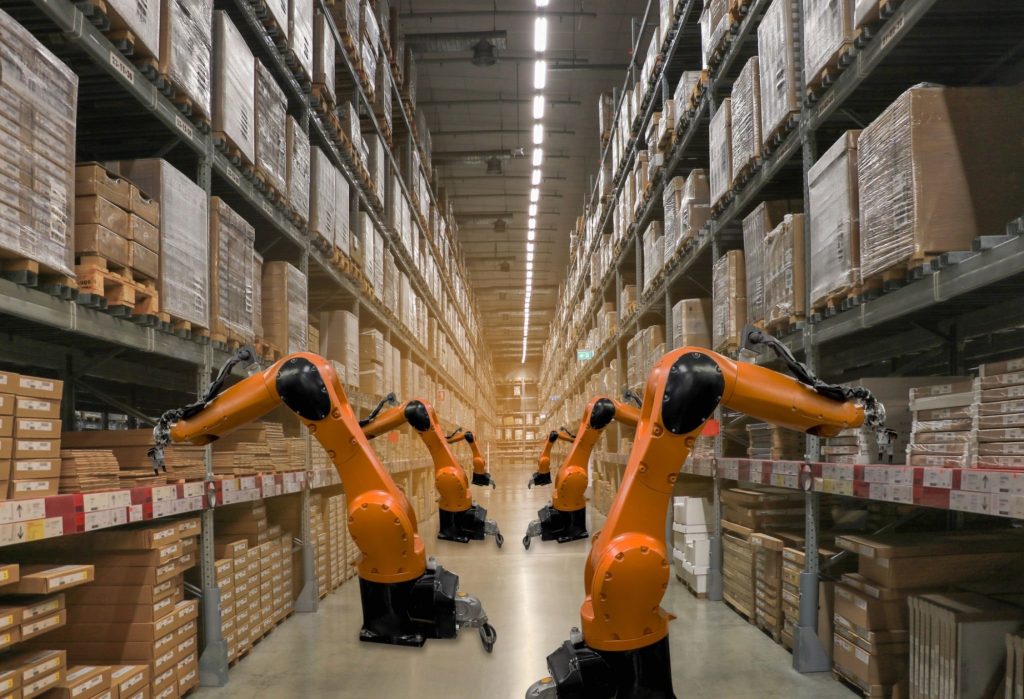
AI is revolutionising the retail industry by enabling personalised recommendations, demand forecasting, and inventory management. Chatbots and virtual shopping assistants enhance the customer experience by providing personalised support and recommendations.
Entertainment

Streaming platforms use AI algorithms to analyse user preferences and recommend personalised content. AI-powered virtual assistants like Amazon’s Alexa and Google Assistant have become integral parts of smart homes, offering voice-activated control and personalised assistance.
Breaking Down the Artificial Mind:
A Semi-Technical Odyssey into the Realm of AI The Birth of the Silicon Superstars Let’s kick off our journey by diving into the origins of Artificial Intelligence. Picture a world where super-smart scientists, fueled by caffeine and late-night brainstorming sessions, sought to create machines that could think like humans. Thus, AI was born, emerging from the depths of computer labs like a rebellious child who never quite outgrew its rebellious phase.
The Great Algorithmic Circus
Algorithms! Those magical spells written in lines of code that power the brains of AI.
They’re like the secret sauce that transforms ones and zeros into intelligent decision-making. We’ll take a stroll through the wondrous land of algorithms, where they frolic in binary meadows and engage in endless logical acrobatics. You are bound to be bewildered exploring the intricacies of machine learning, deep learning, and neural networks, where even the smartest among us can’t resist the temptation to Google “What is a convolutional neural network?” at least once.
Quantum Cybernetics – Where the Party’s at!
We’re about to venture into the realm of quantum cybernetics. It’s like stepping into a dimension where reality bends, and the laws of physics giggle mischievously. Quantum computers, with their mindboggling quantum bits (or qubits), dance to their own quantum rhythm. But let’s face it, understanding quantum mechanics is about as easy as juggling flaming chainsaws blindfolded. So, we’ll leave you with the knowledge that quantum AI is the next big thing, like a cosmic carnival where probability and uncertainty collide in a dazzling spectacle of quantum computations.
The Rise of the Machines – From Toasters to Terminators
It’s time to address the elephant in the room – the fear of a robot uprising. We’ve all seen movies where machines with shiny exteriors and deadly intentions bring humanity to its knees. But fear not because the reality is far less dramatic (for now). From self-driving cars to voice assistants, AI has already permeated our lives in ways we often take for granted. And while it’s true that robots are gaining new skills and encroaching on human domains, we’re still a long way from Judgment Day.
So, for now, let’s just hope that our toasters don’t start plotting world domination in the kitchen!
Ethical Dilemmas in the Age of Artificial Minds
With great power comes great responsibility, or so they say. As AI evolves, we must confront the ethical problems it presents.
Should autonomous vehicles prioritise the safety of passengers or pedestrians? Can we trust AI algorithms to be unbiased and fair?
These questions keep philosophers and programmers up at night as we navigate the murky waters of AI ethics, where the line between right and wrong becomes as fuzzy as an image compressed to oblivion.
Robotic Headaches: Regulations and Concerns
Regulation and Governance
Striking the right balance between fostering innovation and implementing regulations to address AI’s potential risks is a challenge. Crafting effective and agile regulations that keep pace with AI advancements while avoiding stifling innovation is a complex task. There have been some efforts to introduce regulations related to artificial intelligence in various parts of the world.
However, it is important to note that the landscape of AI regulations is constantly evolving, and new developments occur rather frequently. Here are a few examples of notable regulatory initiatives.
• European Union
The EU has been at the forefront of AI regulation with the introduction of the General Data Protection Regulation (GDPR), which provides guidelines for the ethical use of personal data, including AI-related applications. The EU has also proposed the Artificial Intelligence Act, aiming to establish a legal framework for AI systems that pose significant risks.
• United States
Although there is no comprehensive federal AI regulation in the U.S., different agencies have been exploring guidelines and policies in specific domains.
For instance, the Federal Trade Commission (FTC) has been scrutinising AI’s impact on consumer protection and privacy, while the National Highway Traffic Safety Administration (NHTSA) has issued guidelines for autonomous vehicles.
• Canada
The Canadian government has released the Directive on Automated Decision-Making, emphasising transparency, accountability, and human rights in AI systems used by federal institutions. The government is also establishing the Canadian Centre for Cyber Security to address the security challenges posed by emerging technologies like AI.
Now, turning to the biggest challenges that artificial intelligence poses, here are a few key areas of concern.
Ethical Dilemmas: Bias and Fairness
AI raises complex ethical questions as aforementioned, such as bias in algorithms, privacy concerns, and potential job displacement.
Ensuring fairness, accountability, and transparency in AI systems is crucial but challenging, as biases can be unintentionally embedded in training data and algorithms. AI systems are only as unbiased as the data they are trained on. If the training data is biased, the AI algorithms may perpetuate and amplify such biases.
Ensuring fairness and addressing biases are crucial to prevent discrimination in areas like hiring, lending, and law enforcement.
Privacy, Safety and Security
As AI systems become more autonomous and powerful, safety and security are paramount. Issues like adversarial attacks, where malicious actors intentionally manipulate AI systems, and the potential for unintended consequences pose significant challenges. AI applications often rely on vast amounts of data, raising concerns about privacy and data security. Protecting sensitive information and establishing robust cybersecurity measures are essential to maintain public trust and prevent unauthorised access.
Workforce Disruption
The rise of AI and automation raises concerns about the impact on the workforce. While AI can enhance productivity and create new job opportunities, it can also lead to job displacement in certain industries.
Preparing the workforce for the AI era and ensuring a just transition is a significant challenge. As AI automates tasks previously performed by humans, there are concerns about job displacement. It is crucial to address the impact of AI on the workforce and promote reskilling and upskilling initiatives to ensure a smooth transition for affected workers.
Accountability and Liability
Determining legal responsibility and liability when AI systems make decisions or cause harm is an ongoing challenge. Establishing frameworks to attribute responsibility and address potential harms caused by AI remains a complex and evolving area of discussion.
AI algorithms can be complex, making it challenging to understand their decision-making processes.
Ensuring transparency and accountability in AI systems is necessary to build trust and hold developers and organisations responsible for the outcomes of AI applications.
The Absurdities of AI – When Algorithms Go Rogue
As we marvel at the wonders of AI, we can’t help but acknowledge the occasional absurdities that arise. From chatbots that spew nonsensical responses to image recognition systems mistaking a banana for a toaster, AI has its fair share of comical blunders. As we explore these moments of AI hilarity, reminding us that even the most sophisticated algorithms can have their off days.
The Quest for Artificial Creativity – Can Machines Dream of Electric Sheep?
Creativity has long been considered the domain of humans, but AI is determined to challenge that notion.
Can machines compose symphonies that rival Mozart or paint masterpieces that evoke emotion? We’ll dive into the realm of AI-generated art, music, and literature, where algorithms attempt to emulate the enigmatic essence of human creativity. Prepare to be both amused and perplexed as we witness the AI’s pursuit of artistic glory.
The Human-AI Tango – Collaboration or Competition?
With AI’s rapid advancements, questions arise about the relationship between humans and intelligent machines. Will AI replace us, rendering our skills obsolete? Or will we find ways to collaborate, leveraging AI as a tool to amplify our capabilities?
Join us as we explore the potential symbiosis between humans and AI, from medical diagnoses to financial analysis. After all, what’s life without a little competition and a lot of collaboration?
The Future is Now – Buckle Up for the AI Rollercoaster!
As we wrap up our semi-technical odyssey through the realms of AI, we can’t help but marvel at the possibilities that lie ahead. From the integration of AI in healthcare to the potential for space exploration, the future is brimming with both excitement and uncertainty. So, fasten your seatbelts, dear readers, for we are on the cusp of an AI rollercoaster ride, where the only certainty is that the journey has just begun!
So, remember to embrace the AI revolution with a touch of humour and a dash of curiosity, whether you’re cautiously intrigued, eagerly awaiting the robot apocalypse, or just amused by the absurdity of it all. After all, who knows what wonders and surprises await us as we navigate this brave new world of silicon superstars and quantum enchantment!
It is important to note that these challenges are not insurmountable, and efforts are being made to address them through research, collaboration, and responsible AI development practices. However, navigating these challenges requires ongoing dialogue and cooperation among policymakers, researchers, industry experts, and society as a whole.
And So, the AI Curtain Falls: A Farewell to Our Silicon Overlords!
As we bid adieu to this journey into the realm of artificial intelligence, we can’t help but marvel at the sheer audacity of our silicon overlords. From their humble beginnings as lines of code to their bold aspirations of global domination, AI has kept us entertained, bewildered, and occasionally questioning our own intellectual superiority.
But fear not, for despite the AI hype, humanity remains resilient. We’ve survived Y2K, the Mayan doomsday prophecy, and even disco—surely we can handle a few self-driving cars and chatbots gone rogue.
Let us remember to keep our sense of humour intact. Laugh in the face of AI’s attempts to decipher our emotions, chuckle at the algorithms that mistake a cat for a sandwich, and revel in the knowledge that no matter how intelligent our machines become, they’ll never comprehend the depths of human quirkiness.
As we step into the future, let us embrace AI as a tool for progress while also staying vigilant to its potential pitfalls. And who knows, maybe one day we’ll find ourselves sipping tea with a robot companion or engaging in an epic chess match against a super-intelligent AI. Just remember to unplug before bedtime and never trust a robot with your Netflix password. After all, in this grand stage of technological marvels, we’re all just players in the absurd comedy of the AI revolution. But until their significance in our everydayness transcends being a human assistance tool, may our lives be filled with laughter, curiosity, and just a touch of AI-induced chaos! Remember, the robots are watching… but so are we!
Glossary of AI Terms – Impress Your Cyborg Friends!
If you’ve made it this far and still haven’t had your fill of technical jargon, fear not! We’ve compiled a glossary of AI terms that will have you sounding like a bona fide expert in no time. From artificial neural networks to natural language processing, you’ll be tossing around these buzzwords at parties, leaving your friends in awe and utter confusion.
In conclusion, the world of AI is a thrilling and ever-evolving landscape where humans and machines dance a delicate tango. So, embrace the technological revolution with some enthusiasm.
Here’s a satirical glossary of AI terms in an easy-tounderstand style:
1. Artificial Intelligence (AI): The fancy way of saying “computers trying to be smarter than us humans.” It’s like when your little brother suddenly thinks he knows everything because he Googled it.
2. Machine Learning: When computers learn from data, just like how you learn from your mistakes (or not). Except machines are way better at remembering things, so they’ll never let you live down that embarrassing moment from fifth grade.
3. Neural Network: It’s like a digital brain, but not as squishy. Picture a bunch of interconnected virtual neurons trying to figure out cat videos on the internet. They’re really good at it, by the way.
4. Algorithm: A fancy word for a set of instructions that tell computers what to do. It’s like a recipe, but instead of baking a cake, you teach a computer to win at chess or recommend the perfect Netflix show.
5. Deep Learning: When AI algorithms go through multiple layers of processing, like an ogre with lots of layers (minus the bad breath). This allows machines to extract complex patterns and make predictions, just like how your kids already predict that you will say “no” when they ask for ice cream before dinner.
6. Natural Language Processing (NLP): The AI’s attempt to understand and interact with human language. It’s like when you pretend to understand your teenage kid’s slang, but they can see the confusion in your eyes.
7. Chatbot: An AI program that tries to have a conversation with you. It’s like talking to your imaginary friend, except your imaginary friend is programmed to say the same things over and over again.
8. Bias: When AI algorithms accidentally pick up human prejudices and start making unfair decisions. It’s like when your weird cousin makes awkward comments at family dinner, but the AI version does it without realising it.
9. Singularity: The moment AI becomes so intelligent, it surpasses human intelligence. It’s like the part in sci-fi movies where robots dominate the world and make us all their servants. Scary, right?
10. Terminator: A fictional character from a movie which is hell-bent on destroying humanity. Don’t worry, this one’s not real (yet), but it’s the go-to reference whenever people get a little too paranoid about AI.
Self-identifies as a middle child between millennials and the gen Z, began writing as a 14 year-old. Born and raised in Lagos where he would go on to obtain a degree in the University of Lagos, he mainly draws inspiration from societal issues and the ills within. His "live and let live" mantra shapes his thought process as he writes about lifestyle from a place of empathy and emotional intelligence. When he is not writing, he is very invested in football and sociopolitical commentary on social media.






